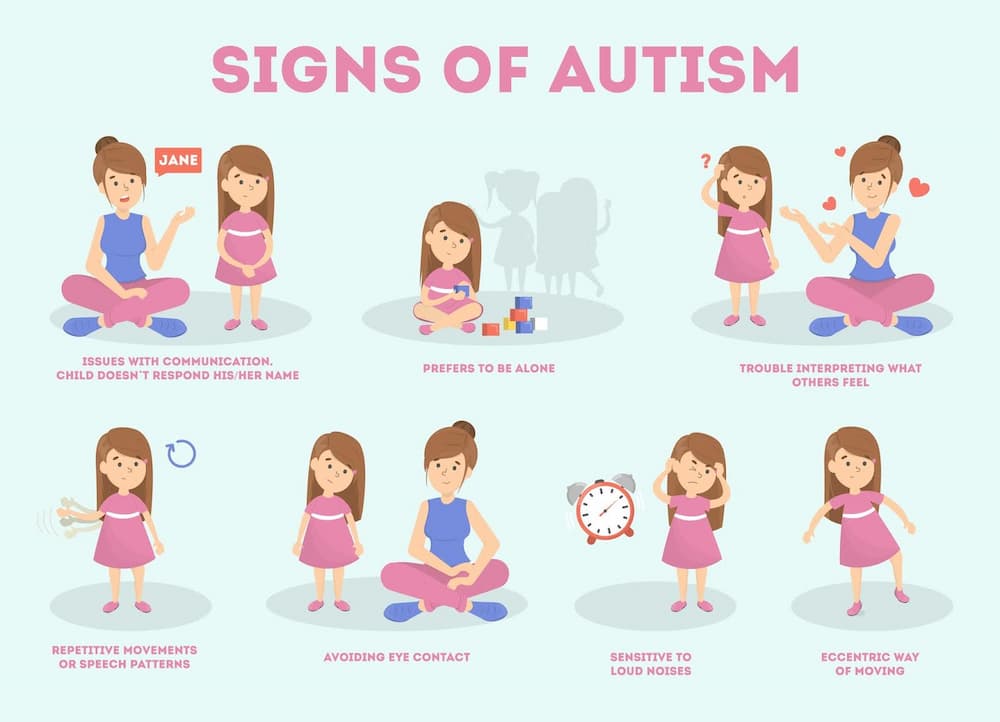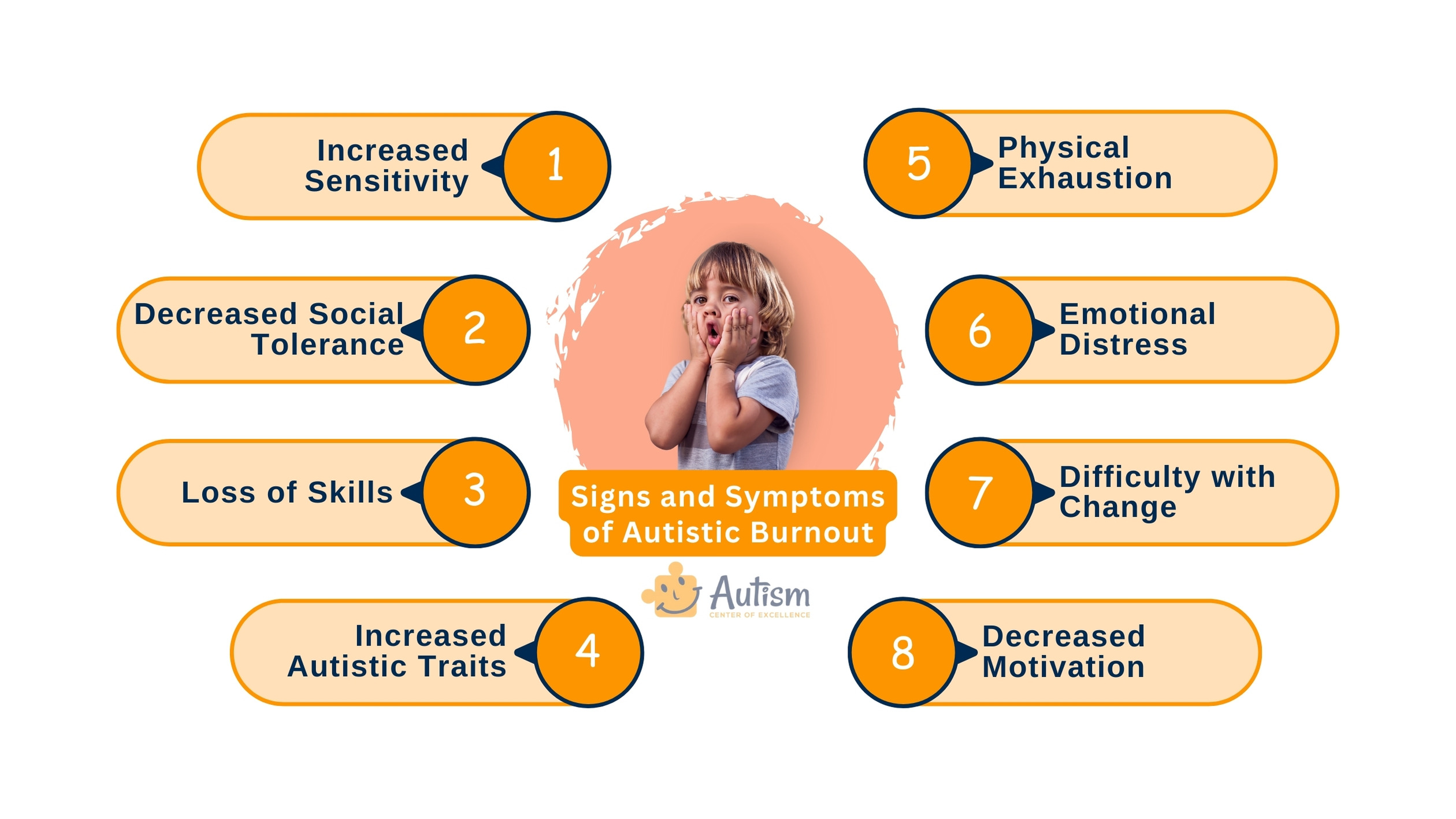Key Signs and Symptoms to Acknowledge in Individuals With Behavior Autism
When you experience someone with behavioral autism, recognizing vital indications and signs is vital. Additionally, sensory level of sensitivities can lead to overwhelming experiences.
Difficulties in Social Communications
When you engage with somebody on the autism spectrum, you could notice they have a hard time with social hints and interaction. These difficulties can make social communications really feel overwhelming for them.
Additionally, you may find that they prefer routines and familiar settings, which can limit their desire to participate in brand-new social situations. When they do involve, they could talk regarding their rate of interests in wonderful detail without seeing if you're interested. This can cause one-sided conversations that leave you feeling disconnected. Understanding these challenges can aid you approach communications with compassion and perseverance, cultivating a more comfortable atmosphere for both of you.
Difficulty With Verbal and Non-Verbal Interaction

Non-verbal interaction can be much more difficult. You could see an absence of eye call or restricted use motions, which can make communications feel uncomfortable. Facial expressions might not always line up with the discussion, resulting in confusion regarding their feelings. Acknowledging these signs is essential, as it helps you better assistance and engage with individuals on the autism range. By recognizing their interaction obstacles, you can cultivate extra significant links and give a much more supportive atmosphere.
Recurring Behaviors and Regimens
Interaction challenges usually come with other indications of autism, such as repetitive habits and a solid preference for routines. You might see that individuals with autism typically involve in specific, repetitive actions, like hand-flapping, shaking, or duplicating phrases. These habits can give comfort and a sense of control in a frequently overwhelming world.
Regimens are similarly essential; many individuals grow when they follow an organized schedule. You may discover that adjustments to these regimens can bring about considerable distress. For instance, if they have a daily routine of consuming breakfast at a particular time or adhering to a certain route to school, any interruption can trigger anxiety.
Acknowledging these patterns helps you comprehend their actions and offer assistance. By fitting their demand for routine and allowing repeated actions, you can develop a much more comfortable atmosphere that alleviates their difficulties.
Sensory Sensitivities

Typical Sensory Triggers
Sensory sensitivities can significantly impact daily life for people with autism, as specific stimuli frequently activate overwhelming reactions. Usual sensory triggers consist of loud noises, intense lights, and solid smells. Understanding these triggers can aid you manage your atmosphere much better.
Behavior Feedbacks Explained
Comprehending your behavioral reactions to sensory sensitivities is essential, as they typically disclose exactly how you engage with the world. You may observe that certain noises, lights, or appearances bewilder you, leading to anxiousness or pain. When confronted with these stimuli, you could take out, cover your ears, or also react aggressively. These reactions aren't just peculiarities; they're your way of dealing with overstimulation. You might likewise locate yourself looking for certain sensory experiences, like deep pressure or silent settings, to aid ground yourself. Recognizing these patterns assists you understand your needs far better and can direct how you interact them to others. By acknowledging your sensory level of sensitivities, you can work in the direction of developing a setting that feels more manageable and comfy for you.
Coping Approaches Overview
Acknowledging your sensory sensitivities is simply the first step; currently it's time to explore coping techniques that can help you handle those experiences effectively. Start by creating a sensory toolkit tailored to your requirements. Developing an organized regimen can also offer predictability, reducing anxiousness around sensory overload.
Limited Rate Of Interests and Focus
While many people create a vast array of interests, those with autism frequently show restricted rate of interests and an intense focus on certain topics. You might see that someone with autism can spend hours delving right into their favored topic, whether it's a specific type of train, a particular film, or a scientific principle. This intense emphasis isn't just a hobby; it can find more information come to be a central component of their identification and social communications.
You might locate that conversations focus on these interests, and they may struggle to participate in broader topics. For them, these focused rate of interests give convenience and a sense of proficiency. While it is very important to urge expedition of new subjects, appreciating their interests is similarly important. By understanding and acknowledging these limited passions, you can cultivate an encouraging atmosphere where they feel valued and understood, enabling more meaningful connections and communications.
Emotional Policy Problems
Individuals with autism usually encounter challenges in psychological regulation, which can be influenced by their intense emphasis on particular rate of interests. You may see that when a person is deeply involved in a recommended activity, they can experience strong emotions, whether excitement or aggravation. This intensity sometimes makes it hard for them to change equipments or handle their feelings when points don't go as prepared.

Irregularity in Developmental Turning Points
When it comes to developmental turning points, you'll observe that people with autism typically show a large variety of variability. You might see a youngster succeed in language abilities however struggle with social interactions.
It's vital to recognize that each person's trip is unique. Some might establish complicated skills early, only to encounter obstacles later. Others might take longer to accomplish fundamental turning points yet after that thrive in particular locations. Observing these patterns can help you comprehend their staminas and needs much better.
Regularly Asked Questions
Just How Is Autism Detected in Kid and Grownups?
To detect autism in children and adults, professionals examine behavior, communication skills, and social communications. They commonly utilize standardized examinations, interviews, and observations to determine if an individual fulfills the standards for autism spectrum disorder.
Exist Various Kinds Of Autism Range Disorders?
Yes, there are different sorts of autism spectrum disorders, consisting of Asperger's syndrome and prevalent developmental disorder-not or else specified. Each kind differs in intensity and attributes, so comprehending these distinctions can aid you much better assistance people with autism.
What Therapies Are Reliable for People With Autism?
When thinking about effective therapies for people with autism, you'll locate alternatives like Applied Behavior Analysis, speech therapy, and job-related treatment. Each strategy can help boost interaction, social skills, and everyday functioning tailored to specific requirements.
Can People With Autism Lead Independent Lives?
Yes, individuals with autism can lead Check This Out independent lives. With the best support, skills training, and resources, you can help them create self-sufficiency, manage day-to-day jobs, and grow in different settings, promoting their self-reliance.
How Can Households Support Liked Ones With Autism?
You can support your loved ones with autism by producing a structured setting, urging their passions, practicing patience, fostering communication, and promoting social abilities. Commemorate their accomplishments, despite just how small, and develop an encouraging community.
Although numerous people on the autism spectrum can understand and use language, they usually encounter significant challenges with both spoken and non-verbal interaction. Recognizing these indicators is essential, as it helps you better assistance and engage with people on the autism range. You could see that individuals with autism typically engage in certain, repeated activities, like hand-flapping, rocking, or duplicating expressions.Sensory sensitivities can learn this here now considerably impact day-to-day life for individuals with autism, as specific stimuli frequently trigger overwhelming reactions.When it comes to developing milestones, you'll observe that people with autism typically reveal a vast variety of variability.